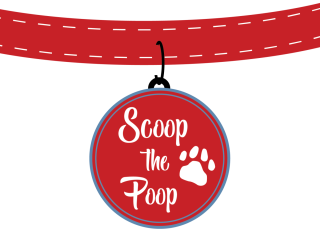Scoop the Poop

Dog waste left on the ground is picked up by stormwater during rainstorms, carried into our catch basins, and runs untreated into Lake Quannapowitt, Crystal Lake, the Mill and Saugus Rivers, and other brooks and streams. The waste carries bacteria, viruses, and parasites that can contaminate public and private drinking water supplies. This pollution encourages weed growth, algae blooms that can result in taste and odor problems, and fish kills.
The Health Risks
In addition to causing water pollution, pet waste can cause infections that make people sick:
- Campylobacteriosis: A bacterial infection that causes diarrhea in humans
- Giardiasis: A protozoan infection of the small intestine that can cause diarrhea, cramping, fatigue, and weight loss
- Salmonellosis: Symptoms include fever, muscle aches, headache, vomiting, and diarrhea
- Toxocariasis: An animal-to-human infection that is caused by roundworms found in the intestines of dogs. The parasite can cause vision loss, rash, fever or cough, and is a particular threat to children exposed to parasite eggs in sand and soil.
Scoop the Poop and Keep our Waterways Clean
The most effective way for pet owners to limit their pet’s contribution to source water contamination is to clean up and dispose of pet waste. Pets should not be walked near streams, ponds, or lakes. Instead, walk pets in grassy areas, parks, or undeveloped areas.
- Place waste in a sealed in a plastic bag and put into the garbage. Biodegradable waste bags are a great option.
- As long as the droppings are not mixed with other materials, pet waste can be flushed down the toilet. This allows waste to be properly treated by a community sewage plant or septic system.
- To bury pet waste, dig a hole at least one foot deep and place three to four inches of pet waste at the bottom. Use a shovel to chop and mix the wastes into the soil at the bottom, then cover the wastes with at least eight inches of soil to keep rodents and pets from digging them up. Pet waste should never be buried in vegetable gardens or food-growing locations. Pet wastes are not recommended for back yard compost piles. (Source: United States Environmental Protection Agency, Office of Water)

